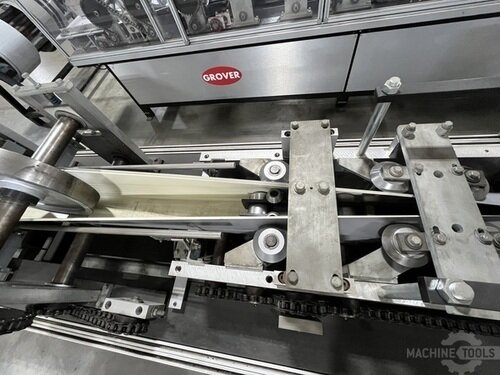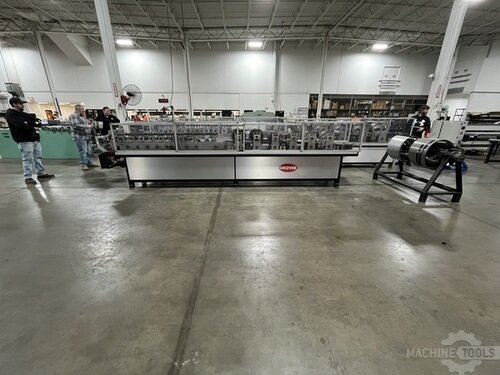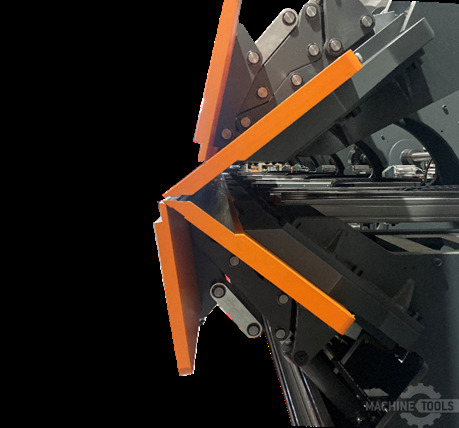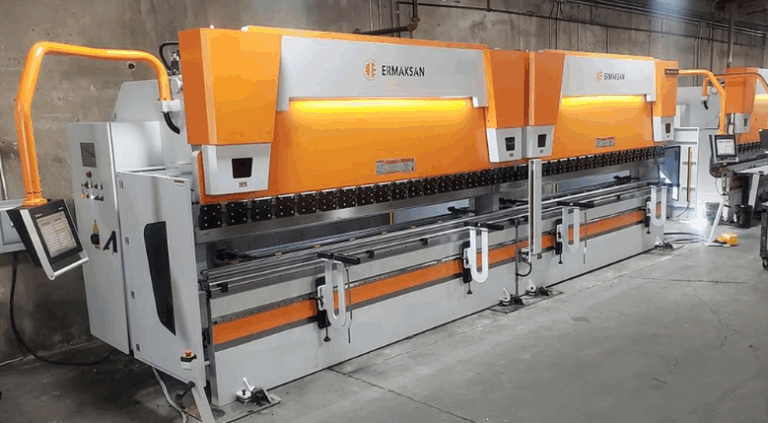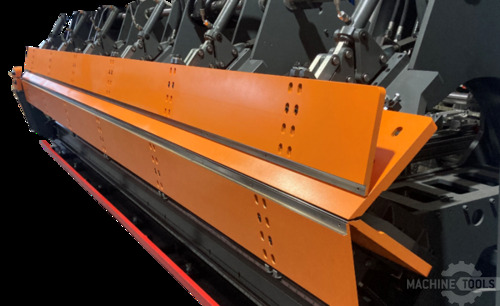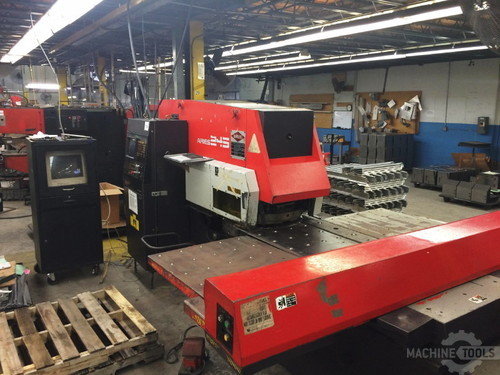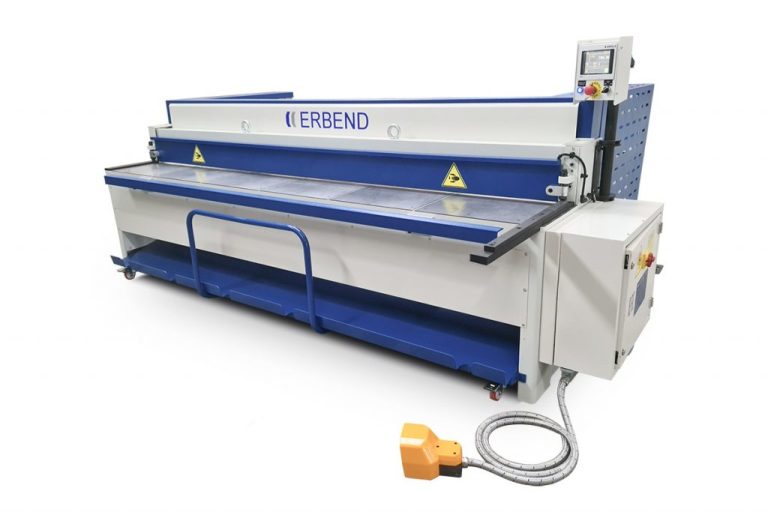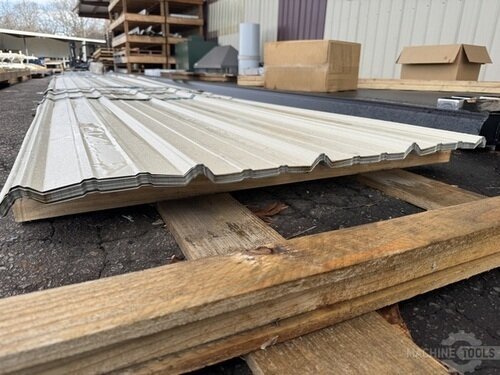Patrick O’Neill here, reaching out from Milwaukee, where I’ve made my home after growing up in southern Chicago. My early years were shaped by the grit and teamwork of rugby, a sport that taught me the value of precision, strategy, and relentless effort—qualities I bring to every customer conversation. Transitioning from the rugby pitch to the manufacturing floor wasn’t a leap but a natural progression, as I found myself drawn to the challenge of solving complex production issues. Now, as Regional Sales Executive at Mac-Tech, I leverage that background to connect with clients on a practical level, understanding their pain points and delivering solutions that truly make a difference.
My journey from Chicago’s industrial neighborhoods to Milwaukee’s manufacturing hubs has given me a unique perspective on the evolving demands of metal forming and fabrication. I’ve witnessed firsthand how automation transforms workflows, and I’m passionate about helping customers reduce waste and labor costs by adopting the right technologies. Whether it’s a downspout roll former or a servo-driven folder, I focus on matching the machine to the customer’s specific needs, ensuring they get the most out of their investment.
Leveraging Sales Experience to Drive Cost Savings
Over the years, I’ve learned that the best way to reduce scrap and labor costs is by integrating automated roll forming solutions that fit seamlessly into existing production lines. Machines like Mac-Tech’s downspout roll formers and coil-to-laser systems are engineered to minimize material waste through precise control and repeatability. When you automate the roll forming process, you eliminate the guesswork and inconsistencies that often lead to scrap. This precision translates directly into cost savings, as less raw material is wasted and fewer adjustments are needed during production runs.
From a sales perspective, I always emphasize the importance of understanding the customer’s workflow before recommending equipment. For example, if a fabricator is struggling with manual folding or inconsistent coil feeding, introducing motorized folders or decoilers can dramatically improve throughput and reduce labor hours. My role is to guide customers through these options, backed by real-world experience and a deep knowledge of Mac-Tech’s product line—from CNC folders and combi-beam folders to slitters and recoilers—so they can make informed decisions that pay off quickly.
Hands-On Insights from the Shop Floor to Sales
Having spent considerable time on the shop floor, I know that the theory behind automation only goes so far without practical insights. I’ve operated and observed machines like double folders, long folders, and servo-driven folders in action, and I understand the nuances that can impact efficiency. For instance, motorized shears paired with a straightener and slitter can streamline the coil processing stage, reducing manual handling and the risk of errors. These hands-on experiences allow me to speak confidently about how each piece of equipment contributes to lowering scrap rates and labor demands.
Moreover, I’ve seen how integrating coil punching and panel benders into a workflow can further enhance productivity by reducing secondary operations. When customers see these machines in action, they appreciate how automation doesn’t just speed up production—it also improves quality and consistency. My approach is always consultative; I listen closely to the challenges fabricators face, then tailor solutions that combine Mac-Tech’s advanced equipment with best practices learned from the shop floor.
GROVER 5400 AX
GROVER 4300
Mac-Tech’s Commitment to Efficiency and Support
At Mac-Tech, we don’t just sell machines; we build long-term partnerships. Our commitment to efficiency extends beyond the equipment itself to include comprehensive support and training. We understand that investing in automated roll forming technology is a significant decision, so we back it up with responsive service and expert guidance. Whether it’s troubleshooting a servo-driven folder or optimizing a cut-to-length line, our team is there to ensure customers get maximum uptime and return on investment.
This dedication to support is what sets Mac-Tech apart. We provide tailored training programs to help operators master motorized folders, downspout roll formers, and other complex machinery quickly and confidently. Our goal is to empower customers with the knowledge and tools they need to maintain peak performance, reduce scrap, and lower labor costs over the long haul. When you work with us, you’re not just buying equipment—you’re gaining a partner invested in your success.
Delivering Value Through Automation and Expertise
Automation is more than just a buzzword; it’s a strategic advantage that can transform metal fabrication businesses. By combining Mac-Tech’s cutting-edge roll formers, slitters, and folders with my expertise in sales and production, I help customers unlock new levels of efficiency. For example, integrating a servo-driven folder with a motorized shear and recoiler can create a seamless, automated line that drastically cuts manual labor and scrap. The result is a faster, cleaner process that improves margins and frees up staff for higher-value tasks.
I’m passionate about delivering value not only through technology but also through ongoing collaboration. I stay engaged with customers long after the sale, offering insights on metal folding techniques and roll forming best practices to ensure they continue to benefit from their investment. If you’re looking to reduce scrap and labor costs while boosting productivity, I’m here to help you explore how Mac-Tech’s solutions can work for your operation.
FAQ
What is the typical return on investment (ROI) for automated roll forming equipment?
ROI varies depending on the application, but most customers see significant savings within the first year due to reduced scrap and labor costs. My experience shows that pairing the right equipment—like a downspout roll former or servo-driven folder—with optimized workflows accelerates payback.
How much maintenance do these automated machines require?
While automated equipment like motorized folders and coil-to-laser systems require regular upkeep, Mac-Tech provides comprehensive training and support to simplify maintenance. I work closely with customers to develop maintenance schedules that keep machines running smoothly and minimize downtime.
Do operators need extensive training to use these automated systems effectively?
Training is critical, and Mac-Tech offers tailored programs to get operators up to speed quickly. Drawing from my hands-on experience, I ensure that training covers not only machine operation but also troubleshooting and best practices to maximize efficiency.
Can automated roll forming equipment handle custom or small-batch jobs?
Absolutely. Many of our machines, including CNC folders and motorized shears, are designed for flexibility. I help customers configure their lines to accommodate varying batch sizes without sacrificing precision or increasing scrap.
How does Mac-Tech support customers after the sale?
Our relationship doesn’t end at purchase. I’m personally involved in ongoing support, whether it’s remote troubleshooting, on-site visits, or process optimization advice. Mac-Tech’s commitment to service ensures customers get the most from their investment over time.
If you’re interested in exploring how automated roll forming can reduce scrap and labor costs in your operation, I’d love to connect. Whether it’s a detailed discussion or a live demonstration of our equipment, I’m here to help you find the right solution. Reach out anytime at pat@mac-tech.com or call me directly at 414-232-7929. Let’s work together to drive your manufacturing efficiency forward.
Get Weekly Mac-Tech News & Updates

